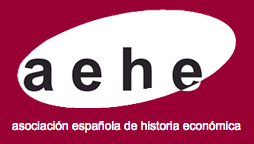Epidemics and (il)licit trade in Southern Europe: Mallorca, nineteenth century
DOI:
https://doi.org/10.33231/j.ihe.2020.10.002Keywords:
Epidemics, Cordons sanitaires, Trade and contrabandAbstract
The measures of sanitary watch, and especially the more radical ones such as cordons sanitairies, have usually been considered to be contrary to commercial interests and therefore negative for the economy in general. However, the countries of southern Europe, due to historical tradition, geography and even budget availability,
had no other option than to adopt quarantine measures, following the criteria agreed at the International Health Conferences, if they wanted to continue participating in the international trade system. In fact, these restrictive measures did not stop the growth of trade, as the case of Mallorca shows along the 19th century. They were a formidable tool of the new liberal authorities to discipline the population and attack contraband, which, in addition to being a threat to health, contravened the bourgeois social order, the nation state and even certain aspects of capitalism.
Downloads
Downloads
Published
How to Cite
Issue
Section
License
Copyright (c) 2020 Pere Salas-Vives, Joana Maria Pujadas-Mora

This work is licensed under a Creative Commons Attribution-NonCommercial-NoDerivatives 4.0 International License.
Aquellos autores/as que tengan publicaciones con esta revista, aceptan los términos siguientes
- Los autores/as conservarán sus derechos de autor y garantizarán a la revista el derecho de primera publicación de su obra, el cuál estará simultáneamente sujeto a la Licencia de reconocimiento de Creative Commons Reconocimiento-No comercial-Sin obra derivada 4.0 Internacional que permite a terceros compartir la obra siempre que se indique su autor y su primera publicación esta revista, y no permite hacer uso comercial de la misma ni tampoco obras derivadas.
- Los autores/as podrán adoptar otros acuerdos de licencia no exclusiva de distribución de la versión de la obra publicada (p. ej.: depositarla en un archivo telemático institucional o publicarla en un volumen monográfico) siempre que se indique la publicación inicial en esta revista.
Plagio y fraude científico
La publicación de un trabajo que atente contra los derechos de propiedad intelectual será responsabilidad de los autores/as, que serán los que asuman los conflictos que pudieran tener lugar por razones de derechos de autor. Los conflictos más importantes pueden darse por la comisión de plagios y fraudes científicos.
Se entiende por plagio:
- Presentar el trabajo ajeno como propio.
- Adoptar palabras o ideas de otros autores sin el debido reconocimiento.
- No emplear las comillas u otro formato distintivo en una cita literal.
- Dar información incorrecta sobre la verdadera fuente de una cita.
- El parafraseo de una fuente sin mencionar la fuente.
- El parafraseo abusivo, incluso si se menciona la fuente.
Las prácticas constitutivas de fraude científico son las siguientes:
- Fabricación, falsificación u omisión de datos y plagio.
- Publicación duplicada.
- Conflictos de autoría.





